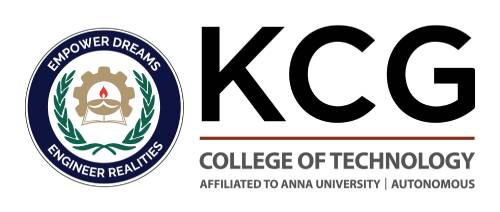Peer Mentorship: A Key to Thriving in Engineering Education
Engineering is a demanding field that requires not only technical knowledge but also strong problem-solving, critical thinking, and interpersonal skills. For students pursuing an engineering degree, the journey can be challenging. One effective way to navigate these challenges is through peer mentorship, a powerful tool that fosters learning, growth, and success. At KCG College of Technology, we believe in the value of peer mentorship as an essential component of our students’ academic and personal development. Engineering students face unique challenges, including rigorous coursework, complex projects, and the need to constantly stay updated with the latest technological advancements. Peer mentorship provides several key benefits that help students thrive in this competitive environment.
Academic Support and Knowledge Sharing
Engineering subjects can be difficult to master, especially when students are faced with dense theoretical concepts and advanced technical skills. Peer mentors, who have already completed the courses, can provide insights into how to approach the material, suggest study techniques, and share useful resources. This support not only helps mentees perform better in exams but also deepens their understanding of the subject.
Boosting Confidence and Reducing Stress
Engineering programs can often be stressful, with tight deadlines, challenging projects, and high expectations. Peer mentors help alleviate this stress by offering encouragement and advice on how to manage workloads effectively. Hearing about their mentors’ experiences and success stories can boost the confidence of junior students, reassuring them that they, too, can overcome obstacles and achieve their goals.
Enhancing Professional Development
In addition to academic support, peer mentors can also provide guidance on career development. Engineering students often seek advice on internships, job placements, and research opportunities. Mentors, who have already gone through the process, can offer valuable insights into how to network, prepare for interviews, and build a strong portfolio. This kind of professional guidance is crucial for students looking to make the most of their time at college and secure promising opportunities post-graduation.
Developing Leadership and Communication Skills
For the mentors, peer mentorship is equally beneficial. Acting as a mentor requires strong leadership, communication, and interpersonal skills. Mentors learn how to guide others, offer constructive feedback, and foster a supportive learning environment. These skills are not only essential in the workplace but also help mentors grow personally and professionally.
At KCG College of Technology, peer mentorship extends beyond the classroom through various student clubs and participation in national and international hackathons and innovation challenges. These extracurricular activities provide students with opportunities to collaborate, share knowledge, and work as a team, fostering a natural environment for peer mentorship. Whether in coding clubs, robotics teams, or sustainability initiatives, students come together to solve real-world problems, with senior students often guiding juniors in the process. Additionally, during hackathons and innovation challenges, students from different departments mentor each other, combining their expertise in fields like artificial intelligence, mechanical engineering, and aeronautics. This collaborative approach not only enhances problem-solving skills but also creates a strong support network that helps students succeed both academically and professionally. Through these platforms, KCG College of Technology nurtures a culture of learning, innovation, and peer-driven growth.








